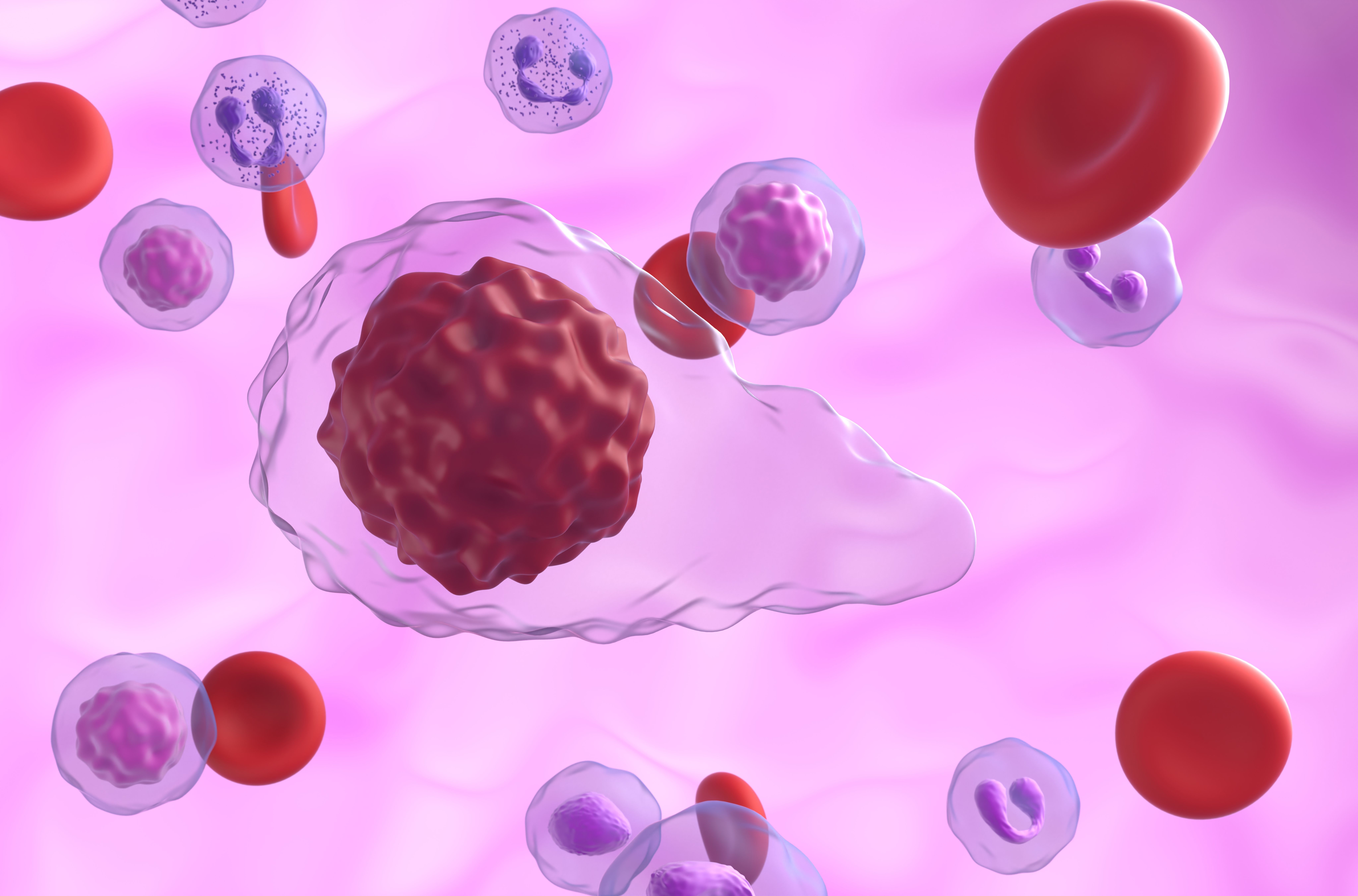Tebapivat Scores FDA Orphan Drug Designation in MDS-Associated Anemia
Tebapivat, a novel pyruvate kinase activator, is being investigated for the treatment of anemia in patients with lower-risk myelodysplastic syndromes.
Primary myelofibrosis cells in blood flow: © LASZLO - stock.adobe.com

- The FDA has granted orphan drug designation to tebapivat (AG-946) for the treatment of myelodysplastic syndromes (MDS)-associated anemia.
- Tebapivat is a novel pyruvate kinase (PK) activator.
- A phase 2b study (NCT05490446) is currently evaluating the agent.
Tebapivat, a novel PK activator, has been granted orphan drug designation by the FDA for the treatment of anemia due to lower-risk MDS.1
“Receiving orphan drug designation for tebapivat in MDS underscores the importance of bringing new oral treatment options to patients suffering from this rare disease,” said Sarah Gheuens, MD, PhD, chief medical officer and head of research and development at Agios Pharmaceuticals, in a press release. “We aim to deliver the first oral therapy that addresses anemia due to ineffective erythropoiesis in lower-risk MDS, which affects approximately 75,000 to 80,000 patients in the US and [European Union] and accounts for approximately 70% of MDS cases.”
With this designation, Agios, the sponsor, is qualified for incentives including tax credits, exemption from user fees, and a potential 7 years of market exclusivity following drug approval.
Mitapivat (AG-348), another PK activator from Agios, was previously granted orphan drug designation for the treatment of PK deficiency, thalassemia, and sickle cell disease.
About the Phase 2b Study of Tebapivat in Lower-Risk MDS
Tebapivat is being investigated in a phase 2b, open-label study in patients with anemia due to lower-risk MDS.2 An estimated 80 patients are enrolled across 44 locations in the US, Australia, Austria, the Czech Republic, France, Germany, Greece, Israel, Italy, the Republic of Korea, Poland, Spain, and the United Kingdom.
The primary end point in phase 2b is transfusion independence for at least 8 consecutive weeks, and secondary end points include duration of transfusion independence and pharmacokinetics.
Tebapivat is being administered at 3 dose levels for up to 24 weeks, and patients who complete the core period will be eligible to receive the same dose in the extension period for up to 156 weeks.
Patients were eligible for enrollment if they were at least 18 years old with documented diagnosis of MDS according to WHO classification, had received up to 2 prior therapies including erythropoiesis-stimulating agents (ESAs) and/or luspatercept (Reblozyl), and had an ECOG performance status of 0 to 2.
Those with a known history of acute myeloid leukemia, secondary MDS, prior exposure to a PK activator, or a history of active and/or uncontrolled cardiac or pulmonary disease within 6 months of enrollment were not eligible for participation in the study. Further, patients could not be receiving ESAs or luspatercept at the time of enrollment.